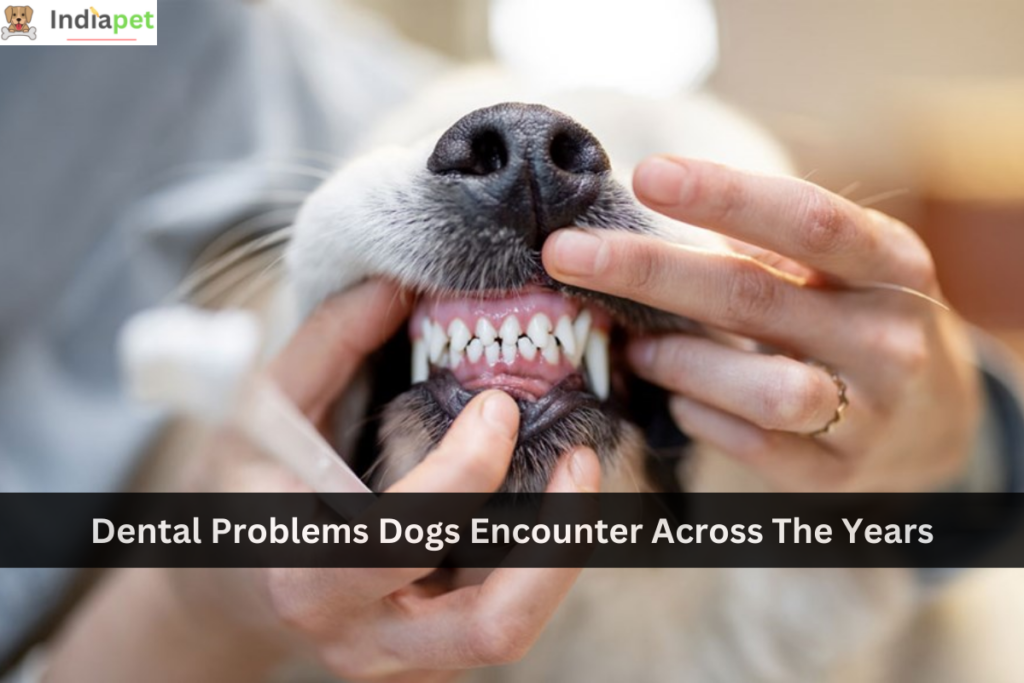Dental Problems Dogs Encounter Across The Years: As our furry friends grow older, they may encounter a variety of dental problems that require special attention. From puppyhood to their golden years, dogs can experience a range of oral health issues that can affect their overall well-being. In this article, we will explore the dental problems dogs commonly face at different stages of their lives and discuss how to prevent and treat them.
Dental Problems Dogs Encounter Across The Years
1. Common dental problems in puppies
During the early stages of a dog’s life, teething can be a challenging time. Puppies often experience discomfort and may chew on objects to relieve the pain. This chewing behavior can lead to dental problems such as fractured or damaged teeth. Additionally, the eruption of new teeth can cause gum inflammation and discomfort.
2. Unique Characteristics and Qualities of Each Expensive Dog Breed
Each of the expensive dog breeds mentioned above possesses unique characteristics and qualities that make them highly sought after. From the Tibetan Mastiff’s majestic presence to the Rottweiler’s loyalty and guarding abilities, these breeds offer something special to their owners.
The Chow Chow’s aloofness and regal appearance, the English Bulldog’s charm and muscular build, and the Samoyed’s friendly and fluffy nature all contribute to their appeal. It is these distinctive traits that set them apart from other breeds and make them worth the high price tag for those who can afford them.
3. Dental issues in adult dogs
As dogs enter adulthood, they may develop plaque and tartar buildup, leading to gum disease and bad breath. Poor oral hygiene can result in gingivitis, characterized by inflamed and swollen gums. If left untreated, this can progress to periodontal disease, which can cause tooth loss and infections.
Regular brushing is crucial for adult dogs to prevent dental problems. Aim to brush your dog’s teeth at least three times a week using a dog-friendly toothbrush and toothpaste. Additionally, dental chews and treats can help reduce plaque buildup and freshen breath. It is important to choose products that are specifically designed for dental health and approved by veterinarians.
Also See:
Can Dogs Eat Oatmeal? Know quick answer
4. Signs and symptoms of dental problems in dogs
It is essential for dog owners to be aware of the signs and symptoms of dental problems in dogs. Early detection can lead to prompt intervention and better treatment outcomes. Some common signs of dental problems in dogs include:
- Difficulty eating or loss of appetite
- Excessive drooling
- Bleeding or inflamed gums
- Bad breath
- Pawing at the mouth
- Loose or missing teeth
- Swelling or lumps in the mouth or face
If any of these signs are observed, it is important to consult with a veterinarian for a comprehensive dental examination and appropriate treatment.
5. Preventive measures for maintaining good dental health in dogs
Prevention is key when it comes to maintaining good dental health in dogs. Here are some preventive measures that can help keep your dog’s teeth and gums healthy:
- Regular brushing: Brush your dog’s teeth at least three times a week using a soft-bristled toothbrush and dog-friendly toothpaste. Start slowly and make it a positive experience for your dog.
- Dental chews and treats: Provide your dog with specially formulated dental chews and treats that help reduce plaque buildup and freshen breath. Look for products approved by veterinarians.
- Healthy diet: Feed your dog a balanced and nutritious diet that promotes good oral health. Avoid feeding excessive amounts of sugary or sticky treats, as they can contribute to dental problems.
- Water additives: Consider using water additives that promote dental health. These additives can help reduce plaque and tartar buildup and freshen breath.
- Regular veterinary check-ups: Schedule regular dental check-ups with your veterinarian to monitor your dog’s dental health and address any potential issues early on.
6. Home remedies for managing dental problems in dogs
While professional dental care is essential, there are also some home remedies that can help manage dental problems in dogs. These remedies can be used as part of a comprehensive dental care routine. Here are a few home remedies to consider:
-
- Coconut oil: Apply a small amount of coconut oil to your dog’s teeth and gums. Coconut oil has antimicrobial properties that can help reduce plaque buildup and freshen breath.
- Herbal rinses: Some herbal rinses, such as chamomile or calendula, can be used as a mouthwash for dogs. These rinses have soothing properties and can help reduce inflammation.
- Raw bones or chew toys: Offer your dog raw bones or dental chew toys designed to promote good oral health. These toys can help remove plaque and tartar buildup through chewing action.
- Herbal toothpaste: Some herbal toothpaste products are available for dogs. These toothpaste options contain natural ingredients that can help maintain oral health.
Conclusion and importance of regular dental check-ups for dogs
In conclusion, dental problems are common in dogs at different stages of their lives. From teething in puppies to gum disease in adult dogs and tooth loss in senior dogs, oral health issues can significantly impact a dog’s overall well-being.
Establishing good oral hygiene habits, such as regular brushing, providing dental chews, and scheduling professional cleanings, are essential for preventing and treating dental problems. Regular dental check-ups with a veterinarian play a crucial role in maintaining good dental health in dogs
If you like this Article about Dental Problems Dogs Encounter Across The Years please share this Article with your friends and family members.


